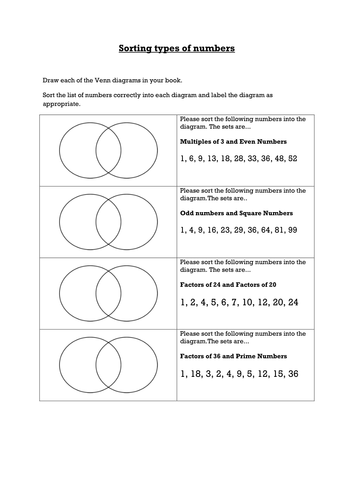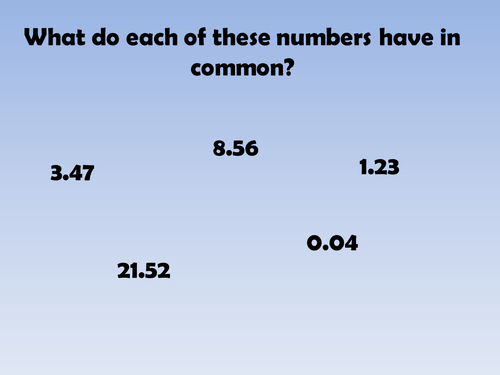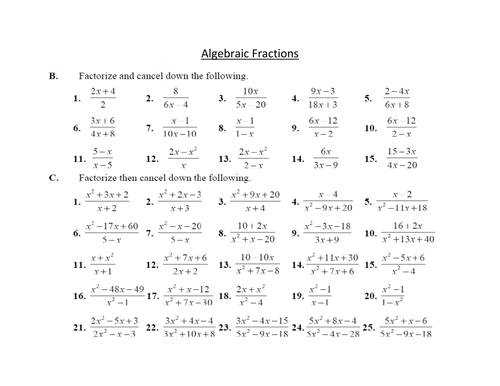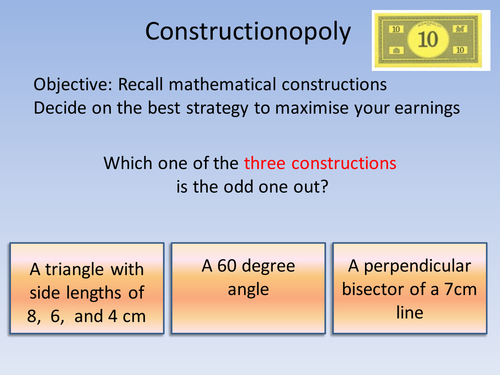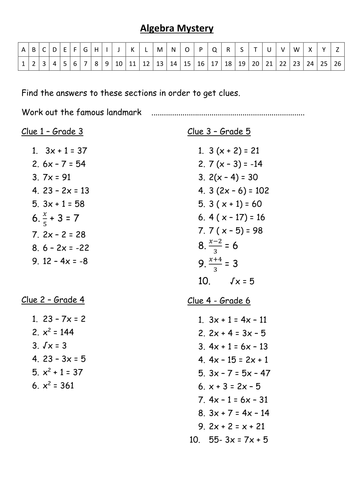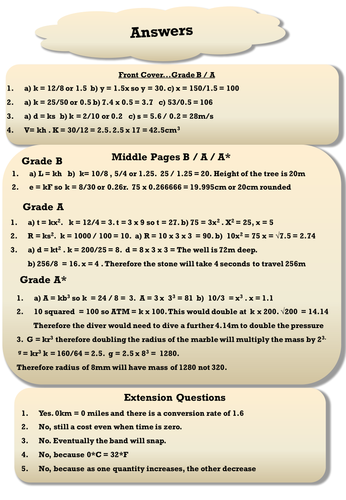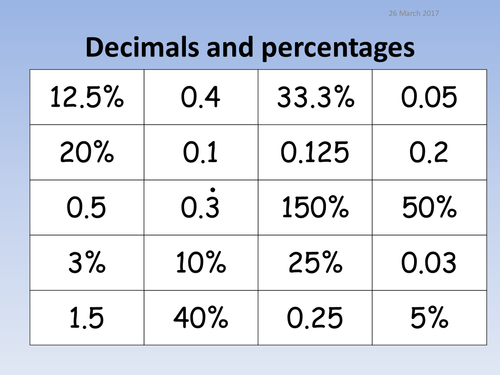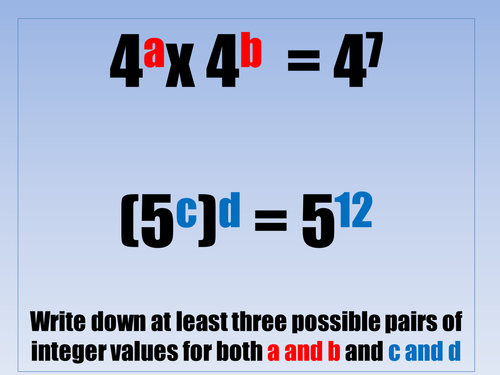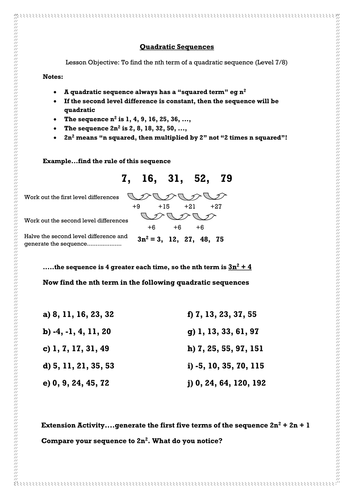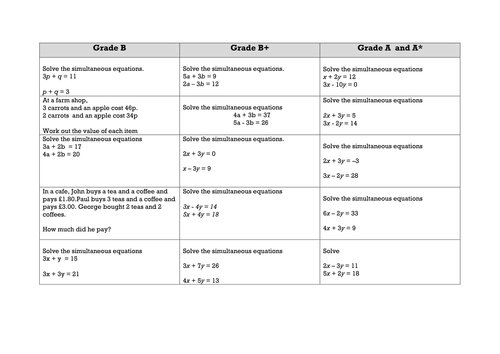
87Uploads
409k+Views
412k+Downloads
All resources

Factors, Multiples, Primes into Venn Diagrams
A lesson to remind students how to classify types of number ideal for Ks3 or Ks4 Foundation GCSE.
See my Free "Bingo" resource for an ideal starter or plenary depending on the group.
The worksheets allows students to do a bit of fun shading, and likewise also introduces Venn Diagrams which have been added into the GCSE curriculum.

Upper and Lower Bounds
New Style GCSE lesson to work with calculations involving bounds. You will need some indepdent worksheet - I use the section in the edexcel text or exam questions.

Trig - Exact Values
A nice notebook file to help students remember exact values of Trig for New GCSE content from 2015

Algebraic Fractions 3/4 Lesson Block
A number of Notebook files to teach all aspects of algebraic fractions, plus a couple of worksheets. As always, If it saves you time and effort, please leave a review!

Constructions Enterprise Activity! Trading Game
This is an excellent trading game activity to be run after teaching students geometric constructions (check out my FREE carousel lesson) Read the lesson plan carefully for the extra equipment needed.
For the money I simply used monopoly money templates but I cannot upload those here for copyright reasons

Codebreakers
1. You need 8 groups.
2. Start with Smart file, then open xls scoresheet
3. Hand out envelopes
4. Stop after 5 mins (freeze IWB)
5. Enter codes 1-3 and review progress - cells turn green if correct on xls
6. Allow 15 Mins
7. Enter codes 4-10 plus corrections
8. Allow 5-10 mins for corrections and final 3 q's
9. Take in scoresheets, students complete a self assessment of topic (levels, targets)
10. Present Results
Plenary: open the box / review trickier questions (they will have some red against them!) - students reflect on targets and progress.
Enjoy

Mixed Numbers and Top Heavy or Improper Fractions
To use this lesson you will need a decent sized quantity of multi-link cubes or similar for the "Chocolate Factory" - the worksheet has two routes depending on how confident the students are at converting each type of fraction.

Area and Volume Scale Factors
A notebook file for GCSE students detailing how to find the area / volume of similar shapes

Laws of Indices
Upto two lessons worth of work on simplifying expressions involving Indices. By the end of these lessons students should be able to simplify multiple terms.

Types of Number - Factors, Squares, Multiples, Primes
A way of combining recognising types of number for lower ability students in KS4 or KS3 with the new Venn Diagrams element of the KS4 maths curriculum. You may also need some bingo books to use as a plenary activity for this lesson - see my Primes Bingo Resource.

Solving Equations
A lesson to help explain solving equations where the subject appears twice using bags of sweets. A simple differentiated worksheet for students to practice with, where some of the answers are negative / fractional

Angles in Parallel Lines
A comprehensive booklet and series of activities for students to draw and discover the main angle facts surrounding parallel lines, with plenty of practice. It would be useful if students had some form of A/B/C/D voting system for this lesson

Pythagoras Investigation
An investigative lesson where students can "discover" Pythagoras' theorem. Note - you will need to give each group of students a large number of accurately cut squares eg 6 x 6, 9 x 9 which I have not supplied. With prompting students should be able to establish and generalise not only that when the three squares form a right angled triangle, then when they dont form a right angle what this means with regards to the opposite angle!

Straight Line Graphs
An initial lesson on Straight Line Graphs - lots of discussion and drawing of lines so students should make the link between gradient / intercept

Solving Equations with Subject on Both sides
A complete lesson on solving equations, with a literacy element in the worksheet. The starter gets students to form expressions of equal value which is the basis of how you can demonstrate solving, and then some useful ways to explain using bags of sweets and loose sweets!

Direct Proportion
A complete lesson on direct proportion including a starter and some GCSE style questions.

GCSE Reverse / Compound Percentages Revision
A revision powerpoint for the two main ways in which percentage understanding tends to be assessed at GCSE - reverse percentages, and repeated percentage change. This could also be split into two lessons if time is not an issue. Two methods of finding reverse percentages are inlcluded, along with an activity to get students thinking about the decimal multiplier effect.

Surds - Revision Powerpoint
A powerpoint (with an initial starter involving indices) that covers why we use surds, simplifying surds, multiplying and rationalising. I have been using this with Year 11 intervention groups. There are also some example exam style questions and problem solving tasks. You may need some additional work to turn this into even a two or three lesson block.

Generating Quadratic Sequences - Investigation
A lesson to introduce Quadratic sequences as part of the new 9-1 GCSE Content. I approach this topic by getting the students to generate n squared, 2n squared etc and find the second level difference for themselves rather than demonstrating this from the outset.

Solving Simultaneous Equations (Both Linear)
A complete lesson on how to solve simultaneous equations, plus a differentiated worksheet

